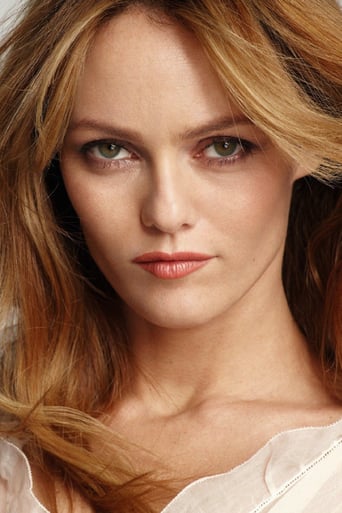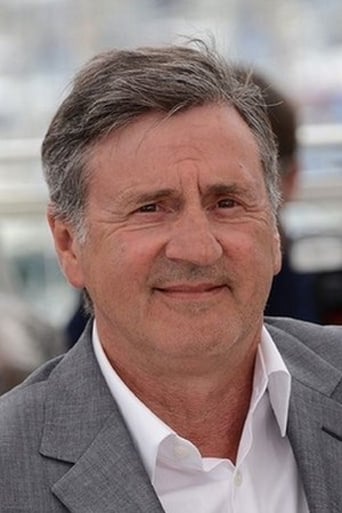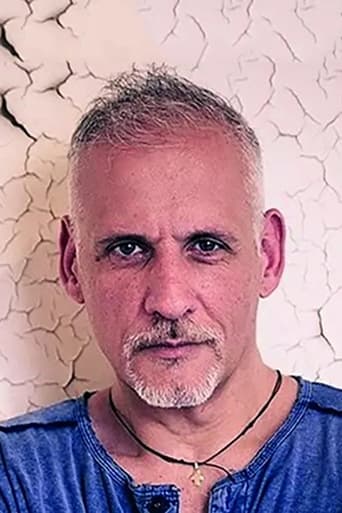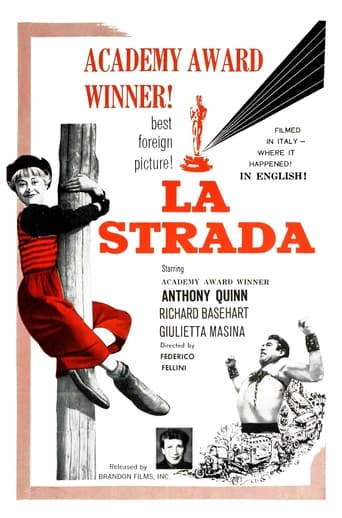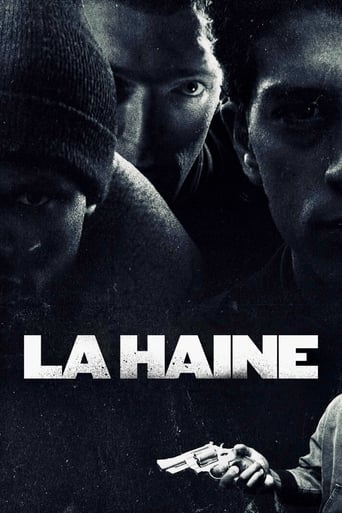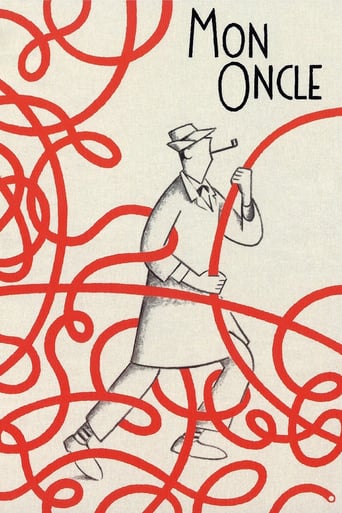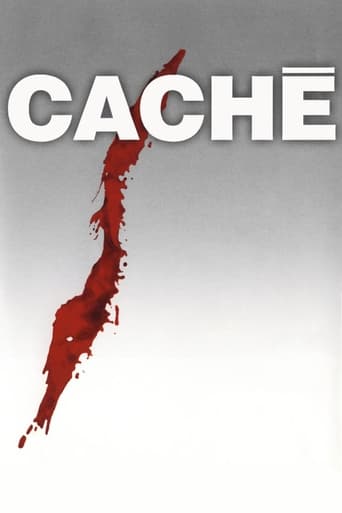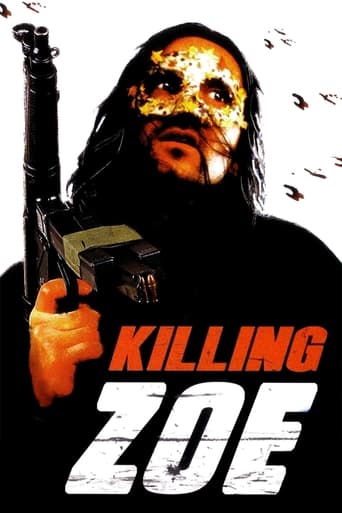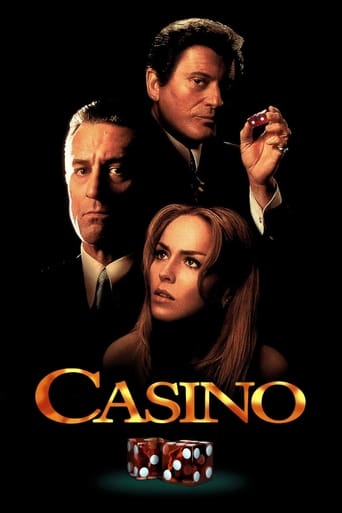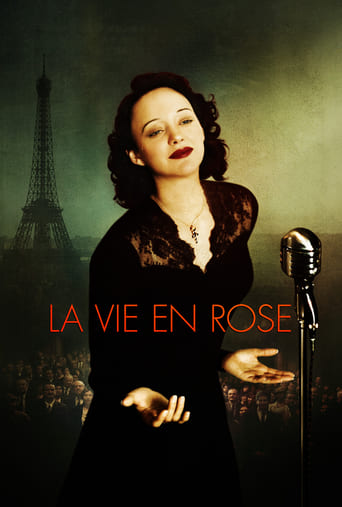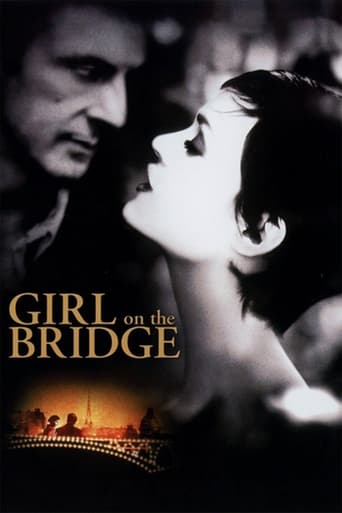
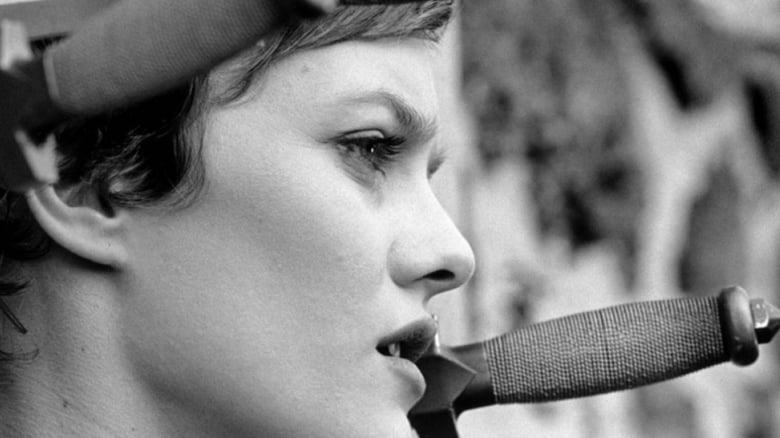
The Girl on the Bridge (1999)
It's night on a Paris bridge. A girl leans over Seine River with tears in her eyes and a violent yearning to drown her sorrows. Out of nowhere someone takes an interest in her. He is Gabor, a knife thrower who needs a human target for his show. The girl, Adele, has never been lucky and nowhere else to go. So she follows him. They travel along the northern bank of the Mediterranean to perform.
Watch Trailer
Cast
Similar titles
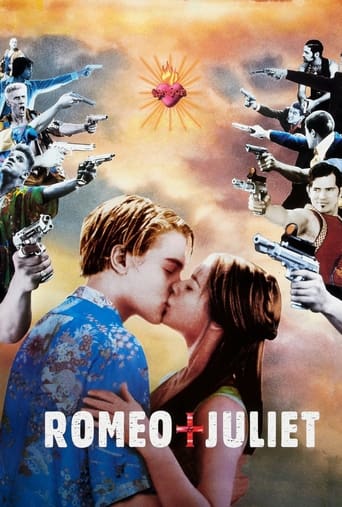
Reviews
Powerful
Let me be very fair here, this is not the best movie in my opinion. But, this movie is fun, it has purpose and is very enjoyable to watch.
A terrific literary drama and character piece that shows how the process of creating art can be seen differently by those doing it and those looking at it from the outside.
By the time the dramatic fireworks start popping off, each one feels earned.
Every once in a while — too rarely — a film unexpectedly hits you like the burst-in-your-mouth of a fresh, flavorsome tomato. You're left sitting with a grin, thinking simply, "Wow. I really enjoyed that." For me, Patrice Leconte's The Girl on the Bridge (La Fille sur la Pont) was one of those films.The film opens with 21-year old Adele (Vanessa Paradis) explaining to a roomful of psychology students why she is suicidal: All her life she has been luckless, especially so with men. She cannot resist men (she feels compelled to try them on, Adele says, like other girls her age try on pretty clothes). Yet men treat her abominably.Cut to a bridge over the Seine. Night. Adele stands on the edge staring down into the water, trying to screw up the courage to jump, the sounds of samba music coming from a passing tourist boat. A man's voice from the dark: "You look like a girl who's about to make a mistake." One of the great pickup lines in film.The voice belongs to Gabor (Daniel Auteuil), a knife thrower in search of a target. He recruits on bridges, he tells Adele, because the women he meets there have little to lose — so if he hits them, it's no big loss. Adele promptly jumps into the river.Fortunately, Adele survives, and she and Gabor perform his knife-throwing act to great acclaim across Europe. In a reversal of fortune for them both, they find that together they have astonishing luck in every facet of their lives. But Adele soon ends it, for with her newfound luck, she has met her Mr. Right, and she leaves Gabor behind.But Gabor and Adele are, as Adele remarks, like the two halves of a torn 50-franc note: Apart, their luck is all bad. Working on a cruise ship, Gabor puts a knife into the thigh of Adele's replacement; he is immediately offloaded in Istanbul, with no means of returning to Paris. Adele is abandoned by her Mr. Right in Athens; she is left lost and destitute.But just as Gabor has lost all hope and is about to jump off an Istanbul bridge, he hears a woman's voice: "You look like a man who's about to make a mistake."The film charms throughout, not least because of the charisma of Paradis and Auteuil. Paradis, in particular, is mesmerizing as Adele, a naive waif with a striking, confident beauty buried inside, waiting to emerge. But Leconte balances the film's charm with a certain gravitas, as throughout Gabor and Adele balance on the edges between life and death; fear and ecstasy; happiness and despair; sexual penetration and emotional laceration. The result is, simply, a pleasure to behold.
This is a beautiful, poetic, absorbing and intensely romantic movie.Daniel Auteuil won a Cesar (the French Academy Award) for his performance here and he certainly deserved it. His portrait of a knife thrower is chilling and warm at the same time. It is amazing that Auteuil did not become a Hollywood star. He has been nominated for Cesar's 12 times and has won twice. Only Gerard Depardieu has been nominated more (15 times and 2 wins). While Depardieu has made more than a dozen Hollywood films, Auteuil has been in none.Bsides Auteuil's outstanding and soulful performance, Vanessa Paradis is astonishing. She is as sexy and openly seductive as Greta Garbo. It is easy to see why she has been Johnny Depps lover/companion for the past 20 years or so.The film is artistic. So do not expect a linear Hollywood plot or easily understood characters. Just let the film's ambiance sweep you away to another world.
... this one's very far from being one of them, unfortunately.Populist detractors of French cinema, knee-jerk Europhobes, phobics of subtitles, blinkered viewers who divide all cinema between Hollywood vs. "pretentious" art-house: if you really want to pick on a French movie that you think embodies all the clichés of Gallic cinema you so love to hate, take your vitriol out on this one! Leave masters like Rivette, Truffaut, Resnais, Rohmer, Denis, Varda and other, much better Leconte movies alone! La Fille Sur le Pont's main players: Gabor, a middle-aged man played by the ubiquitous, but always pleasant to watch Daniel Auteuil and Adèle, a lithely beautiful, gazelle-like young woman who has the face of Vanessa Paradis. Predictably, Adèle is emotionally messed up, fragile and yet sexually promiscuous. The two meet when the charismatic grouch, Gabor, intercepts the girl on a Parisian bridge and prevents her from committing suicide (wasn't that also how Emmanuelle Béart's character and her boyfriend met in La Belle Noiseuse?). Gabor is an itinerant knife-thrower, by the way - sans toit ni loi. Naturally enough, since we are talking about a girl who has nothing to lose, Adèle becomes his target. Despite the rocky beginning, in which the two spend much time squabbling, there is naturally a strong attraction between them (in fact, as clichéd as all this may sound, the first 20 minutes of the movie, in which Gabor and Adèle's relationship is first established, were my favourites). We even get to meet a previous living target of Gabor's, a woman now performing in another circus number, at the venue where Adèle is about to perform for the first time. We see that this "ex" of Gabor's is also fragile and messed up, besides still preserving a clingy dependence on the knife-thrower. So, it seems that what Gabor has to offer women is somehow life-affirming, and better than sex. And in fact, watching Gabor and Adèle at work, you cannot help thinking: who needs these two to literally have sex when all that knife-throwing is more suggestive of penetrative sex than a steamy Tinto Brass scene of your choice? In retrospect, I think this movie's main merit was to make me discover how charming and beautiful Johnny Depp's squeeze is - I had no idea. Sadly, Vanessa Paradis could not save the little movie from being just a nice-looking, superficially funny, substanceless piece of fluff, furthermore a hit-parade of French movie clichés that I thought would be beneath Leconte. Beineix's Betty Blue, Senta from Chabrol's silly La Demoiselle d'Honneur, Romane Bohringer's character in L'Appartement, even Jeanne Moreau as Catherine in Jules et Jim, and countless others: why are so many women in a certain category of French cinema invariably characterized as fragile and irrational, unsettlingly unpredictable and self-destructive, even suicidal? Yet, they are also intoxicatingly seductive and sexually voracious, fickle and capricious. They're the ultimate misogynist's sex fantasy, a woman that frightens (the vagina dentata myth being a symbolic exasperation of this fear of femininity) and enslaves the male (because sexual attraction is biologically inescapable). Paradis's Adèle was in fact a rather tone-down, sweetened version of one such stock female creation - in fact, perhaps a part of Leconte was distancing himself from this prototype and playing with it, though the other part of him was embracing it. But the fact that in the end Leconte shows us Gabor's fragility and Adèle's nascent strength goes some way towards showing that the director was also partly turning the stereotype on its head. The "Betty Blue" is what I call the female French movie prototype of the fragile-sexy-doomed heroine, which DOES certainly also exist in other cinematic traditions, though I seem to observe it more often in French movies. It's a fictional embodiment of womanhood that can be traced right back to the doomed "femme fatales" of the 19th century French artistic movement The Symbolists.The scenes of La Fille Sur le Pont that were set in Italy, Greece and Turkey were rather dubious in their astonishingly twee and simplistic stereotyping as well. They were the equivalent of accompanying any scene set in Paris with sappy accordion music and a view of the Eiffel tower in the background. Was Leconte trying to be "Fellinian" in that raffle scene in San Remo? Oh, puhleez! Give me Tandem, Ridicule or L'Homme du Train any day over this candy floss, Patrice.
Two tragic characters: A beautiful girl, on the edge of a bridge contemplating suicide, and a broken man, on the same bridge for the same reason. The man is a believer. He believes in fortune. He's been around, and he's seen many things. He can tell when the wheels of fortune are turning, and in the face of the young girl he sees salvation for them both. He senses a feeling stronger than fate or Kismet or whatever you want to call it. A conviction that two people can be made for each other, that two people can connect in a way imperceivable and unobtainable for most of the world, a connection so deep and so strong, that it can make them invincible. In most movies of this kind, you expect the characters to discover how right they are for each other along the way. In this movie they know it the instant they meet, but they're too proud and too overwhelmed to accept the fact that it could be so easy.Patrice Leconte takes us on a wonderful journey around Europe, and fills each black and white frame with such colorful feelings that it's next to impossible not to be taken in by the mere suggestion that there can be a perfect match for each person, and that together they can take on the world.La fille sur le pond, is a movie about fortune, destiny, love, danger, lust, luck, romance but above all, I think that it's about connection. Connection on a level so high that it becomes divine. This movie is unique and in it I find refuge whenever I feel alone or lonely.
